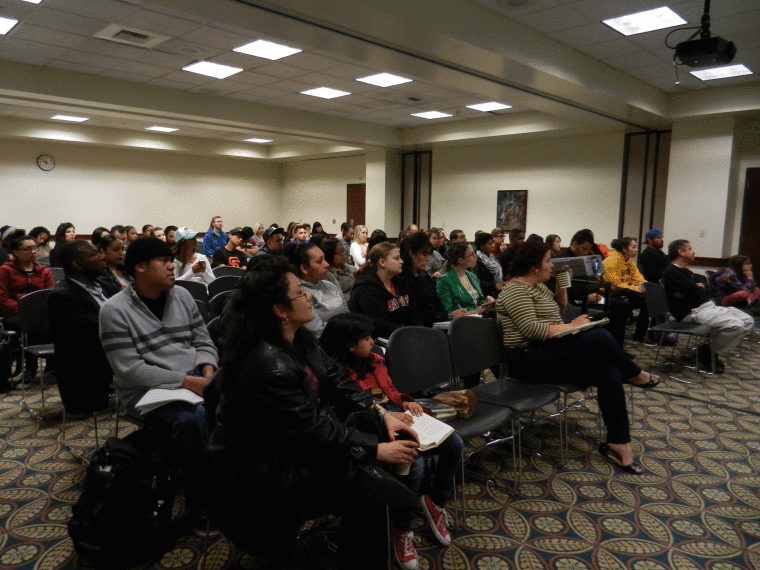Serna Center set to reopen this fall with university funding
Sacramento State’s Serna Center will reopen in the fall after receiving funding from President Alexander Gonzalez to serve as a campus forum for students.
February 12, 2014
Sacramento State’s Serna Center will resume serving students at the Riverfront Center in fall 2014 after a transitional period in which funding for a new director and a new location were decided.
The Serna Center provides civic engagement, political knowledge, academic access and community service, said new Serna Center Director Viridiana Diaz.
“The Serna Center allows students to be engaged and not only to become informed, but also to be able to develop their own ideas and opinions about issues of importance to our community and to our lives in general,” Diaz said.
Established in 2003, the Serna Center was named after the late Sacramento mayor and government professor Jose Serna and his late wife Isabel Hernandez-Serna, a pioneer of various Sac State equity programs.
Former Interim Director Manuel Barajas said the center is important for Latinos and Chicano students because it provides knowledge, promotes political activism and creates coalitions with on-campus and off-campus communities.
Barajas developed MURALES in the fall of 2012, a program that encourages students to further their education and prepare for doctorate graduate programs.
Designed to be self-supportive within five years, the center struggled to locate funding and had been dwindling for several years, said President Alexander Gonzalez, who will allocate funding at the university level.
“They are not going to have to worry about raising funding anymore because that is what really was holding it back, and it is a very difficult thing to do, especially in a bad economic environment,” Gonzalez said.
Diaz said she is gathering feedback from the deans of the various colleges to get a sense of the types of issues that affect students on campus to present panel discussions and create an environment for dialogue.
Barajas said he was glad the center will receive university funding, but that it would face new challenges in maintaining its mission.
“Our college has no representation of Latino (and) Latina (students), so we need something like that here,” Barajas said. “If they move it up that is good, if it is going to get support. The problem would be that in trying to address broader interests and making it more popular, it would become a challenge.”
Gonzalez said his vision for the Serna Center includes a forum that will bring students together.
“The Latino community is always going to be a focus, but I think there is so many issues that touch so many people,” Gonzalez said. “My vision is to have it be a forum to bring students together and faculty and staff and (the) community to discuss important issues that affect everyone.”





























































































































